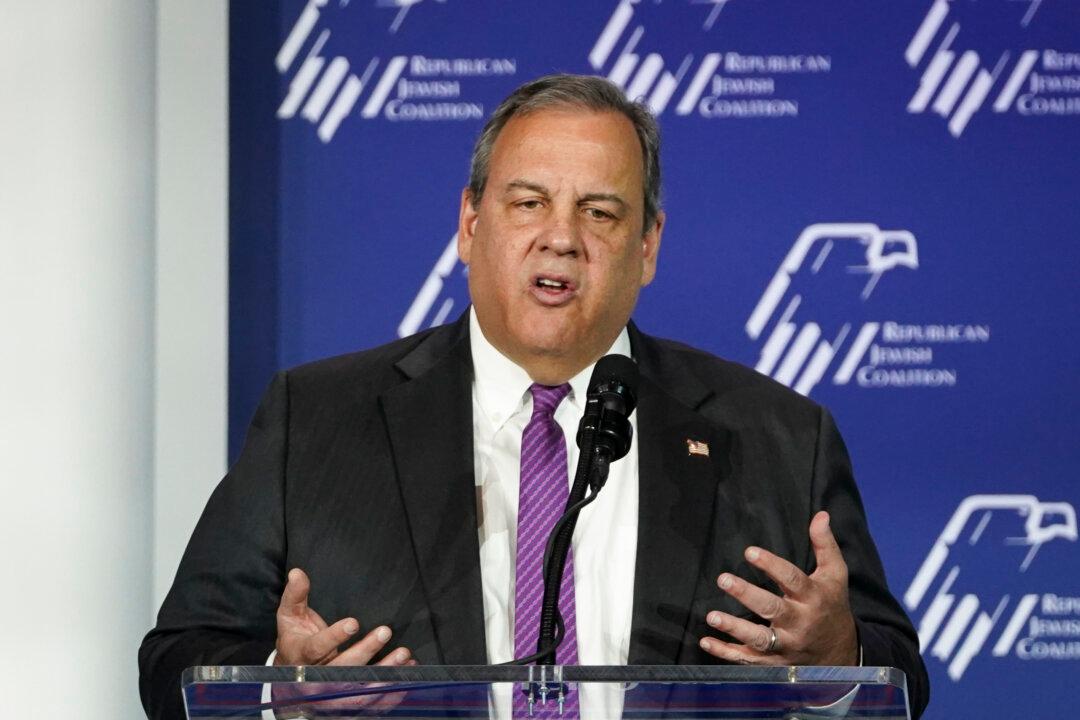New Jersey’s former governor and current GOP presidential candidate, Chris Christie (R-N.J.), is not on Maine’s March 5, 2024, primary ballot, according to an announcement from the Secretary of State.
In a Dec. 1 press release from the Maine Secretary of State announcing the list of candidates on the primary ballot, Mr. Christie and former Gov. Asa Hutchinson (R-Ark.) were the only GOP candidates still in the presidential race missing from the list. Marianne Williamson was also absent from the Democratic ballot.





